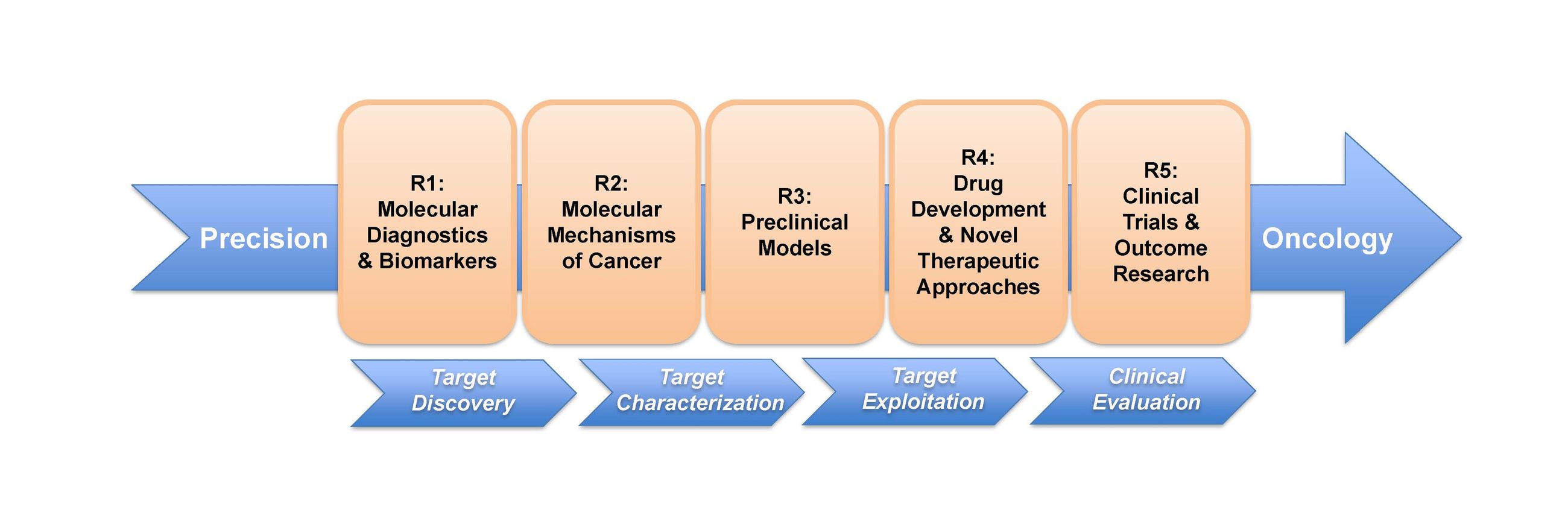The UCT Precision Oncology Program
The UCT Frankfurt-Marburg Precision Oncology Program is organized into five interdisciplinary research programs. "Turning molecular information into novel cancer therapies" reflects the Precision Oncology Program’s mission to advance target identification, characterization and exploitation as well as clinical evaluation. The collaborative research environment at the UCT Frankfurt-Marburg brings researchers together with institutes and networks and provides access to the UCT’s Core Facilities and Platform Technologies.

This research program aims at identifying new diagnostic and predictive molecular markers. By examining patients’ biosamples using high-throughput technologies (e.g. genomics, metabolomics or proteomics), molecules and markers are to be identified and subsequently validated in clinical trials.
This research program seeks to gain deeper understanding of intracellular pathomechanisms in tumor cells. Investigators search to clarify molecular mechanisms of oncogenic signaling networks through basic research in biochemistry, structural biology and cell biology. Insights taken from this research will then form the basis for translational research projects.
This research program links laboratory-based basic research with clinical trials. The goal of this research program is to design new preclinical tumor models, which allow testing of new, individualized treatment strategies. This includes the development of xenograft models (PDX) using patient biomaterials, the breeding of tumor organoids or the use of genetically engineered mouse models (GEMM).
This research program aims at developing new drugs as well as cell and immunotherapeutic agents based on validated target molecules. Similar to the procedure for testing new drugs, dosimetry, biological responses and resistance mechanisms are investigated in small animal irradiation facilities before they are tested in clinical trials. This research program explores target validation, which is an essential component of translational cancer research at UCT-Frankfurt Marburg.
In collaboration with the Clinical Trial Center Network (CTCN), insights gained through basic and translational research are applied in early clinical trials (phase I/II) or molecularly stratified clinical trials. Questions that arise during these clinical trials are channeled back into the research programs 1 through 4 ("from bedside to bench"). The UCT Frankfurt-Marburg’s tumor documentation provides the backdrop for answering questions out of epidemiology and outcomes research.






